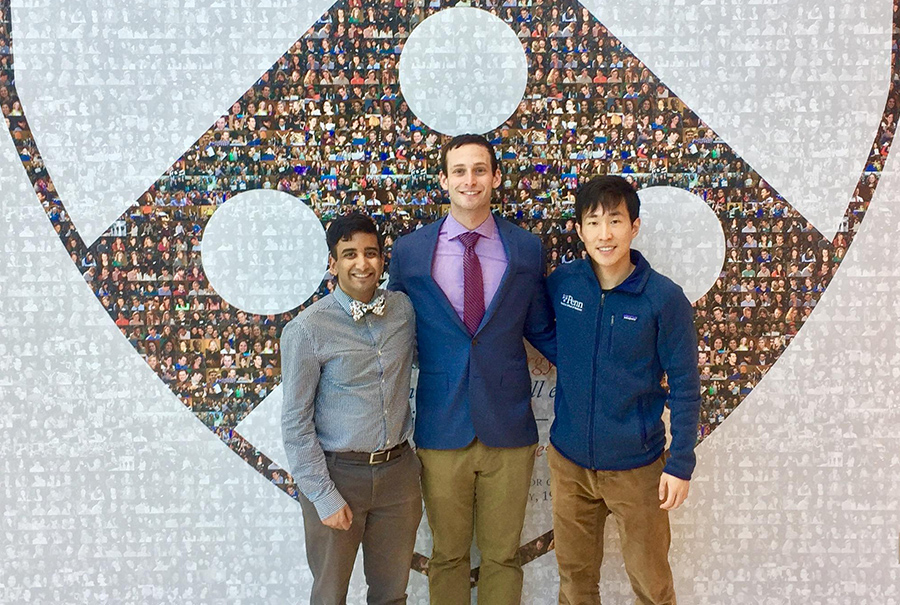Phil Williams recalled his experience after telling a doctor he was gay around age 11.
“I was looking for someone to talk to and the response that I got was that I could be referred to someone else, if I needed to talk to a mental health-care provider or something like that, which I’m sure was — to this provider — a way to try to connect me to the right person,” the 24-year-old said. “But it was perceived as, ‘This is a problem to be fixed’ when all I was looking for was a word of encouragement, being told, ‘It’s OK.’”
Williams, along with his colleagues and LGBT allies Naveen Jain and Jun Jeon, aims to prevent LGBT patients from having negative experiences with SpectrumScores, a web-based application. The three developers, all of whom will enter their second year as University of Pennsylvania medical students in the fall, created the app to help patients find LGBT-friendly providers.
Jain, 23, said users will find specific providers ranked based on “SpectrumScores,” a system made up of four different components: welcoming environment, inclusive policies, LGBT-specific knowledge and an aggregation of the other three rankings. Users can rate the providers based on aspects such as proper pronoun usage, unbiased interviews about sexual histories and overall knowledge on LGBT needs such as PrEP, hormone therapy and gender-confirmation surgery. This information will create a score from 1-5 to aid patients in their search. Additionally, patients can filter providers based on spoken languages and accepted insurance.
Near the beginning of their first semester, the students visited an organization that tasked individuals to solve a problem in the medical field. Unable to find a problem they were passionate about, they formed their own team, Jain said. The three started discussing first-hand experiences and second-hand stories about LGBT health disparities.
“The more that we talked about it, the more we felt like it was something through thick and thin that we’d be really passionate about working on and that really formed the basis of why we got into SpectrumScores,” Jain said.
Williams noted that his interaction with his health-care provider was “benign” compared to their findings in surveys of more than 100 LGBT patients throughout Philadelphia. He added that more than two-thirds of participants reported negative experiences with health-care providers based on their sexual orientations or gender identities. These experiences ranged from “well-meaning but uninformed” interactions like Williams’ to overt discrimination such as being denied care.
The team intends to reach out to providers with low scores and provide concrete suggestions for how they can improve their LGBT competency.
“We want to motivate those physicians to get on board with this idea, enlist themselves and maybe even change their viewpoint to meet the needs of a wider population who are clearly having a negative experience in certain regards,” Jeon said.
The team has already begun winning accolades, such as the Audience Choice Award at Sling Health’s National Demo Day. The website is expected to launch by the end of summer, with a mobile app to follow.
“We really see the primary purpose of the app to connect LGBT patients to not just [providers] who won’t be negative [toward LGBT patients] but to the best providers,” Williams said. “There are incredible providers out there. We have been working with a number of advisers at Penn who were true leaders in LGBT health but there’s, at this point, no effective way to connect the patients to those providers.”
Visit https://spectrumscores.kickoffpages.com/ for more information on SpectrumScores’ upcoming launch.
